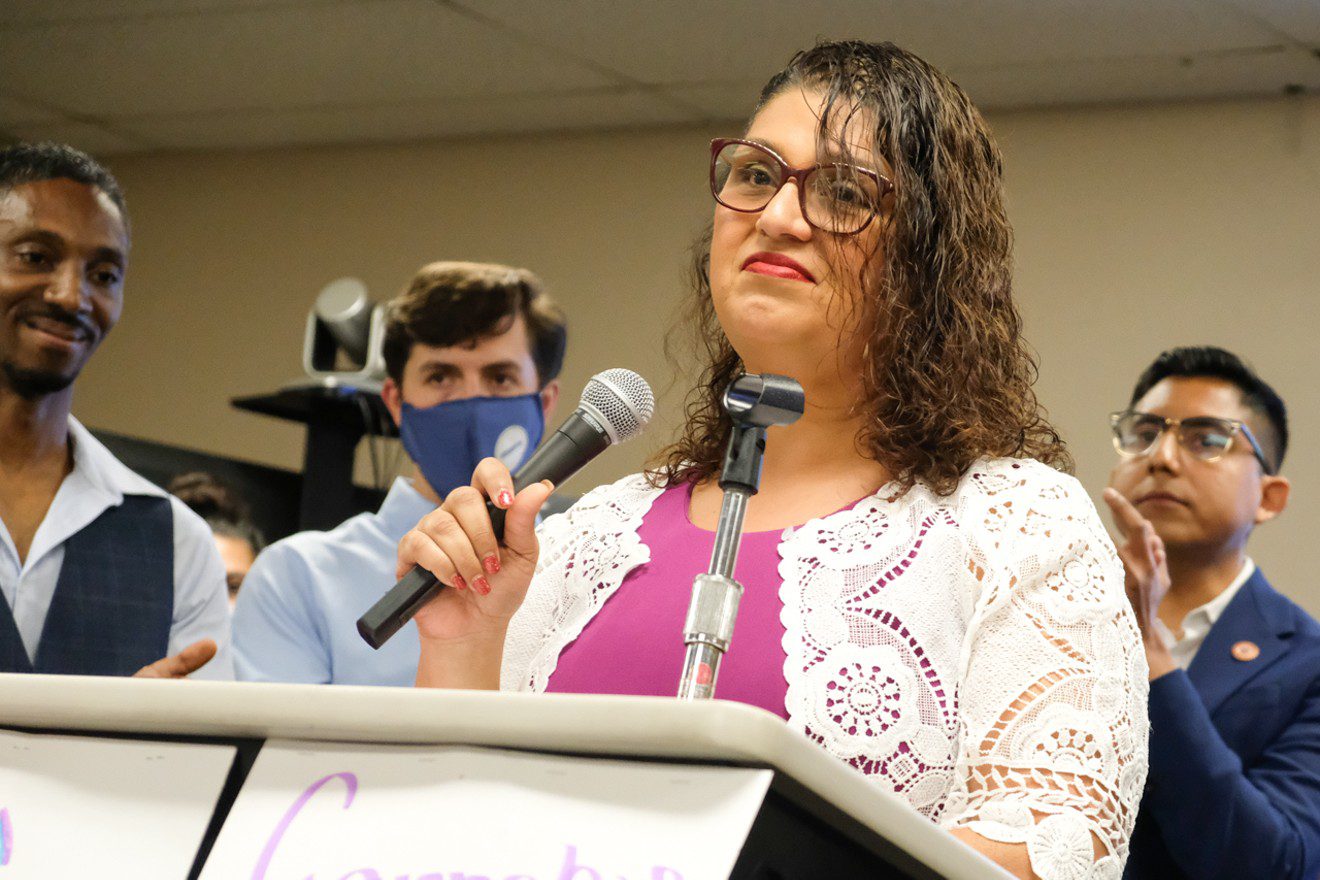‘You’re Gonna Pack the Jails’: Phoenix Targets Unhoused with Camping Ban
City Council committee OKs banning unhoused people from camping near schools, childcare facilities and shelters despite concerns about enforcement.
By TJ L’Heureux April 5, 2024

Phoenix City Council will consider yet another measure to criminalize homelessness, potentially making it illegal to camp within 500 feet of any school, child care facility or shelter as long as notice of the prohibition is posted.
The amendment to Phoenix’s anti-camping ordinance was approved Wednesday in a 3-1 vote by the Public Safety and Justice Subcommittee. Councilmembers Ann O’Brien, Jim Waring and Kevin Robinson voted for the camping ban amendment, while Betty Guardado voted no. The amendment now goes before the full council, though a vote on the ordinance hasn’t been scheduled.
Waring, a Republican, has long voiced concerns about unhoused people preventing others from using city facilities such as parks.
“If you’re living in a park so kids can’t use it, and there’s needles around or whatever, that’s not justice. That’s not anything good. That’s wrong,” Waring said during the subcommittee meeting. “We invest a lot of resources in these facilities so that citizens can use them.”
Critics of further criminalizing homelessness voiced concern during the public comment section of the meeting.
“All you’re gonna do is pack the jails,” said Tony Harris, an advocate for the unhoused population. Harris also argued against the amendment’s camping ban near shelters. “A lot of these homeless people would prefer to be closer to the (shelter) campuses because that’s where the resources are,” he explained.
Mayor Kate Gallego supports the measure, according to Arielle Devorah, a spokesperson for the mayor’s office.
“She wants to make sure local partners affected are included in the process leading up to the vote, and that it undergoes a full legal review — especially because the city is navigating ongoing litigation related to homelessness,” Devorah told Phoenix New Times.
City officials struggle to explain enforcement of new ordinance
The city is walking a fine line when it comes to formulating a plan to enforce anti-camping bans, with homelessness on the rise and several legal challenges either ruled on or expected soon.
During the discussion, Guardado asked Assistant City Attorney Luke Christian about how the ordinance would be enforced if the city doesn’t have enough shelter spaces for unhoused people.
“You mentioned something about that we need to make sure that we have enough beds before we can enforce this. Is that true? Or what happens when people are on the 500 feet and they’re camping there — what happens then?” Guardado asked.
Christian told Guardado and the committee he would prefer to “get into specific factual circumstances” in an executive session, which is closed to the public.
“You need to answer the question. I’m being asked to vote on this item,” Guardado said. “If I’m going to vote yes on this, I need you to be able to answer those questions.”
Guardado also asked Rachel Milne, director of the city’s Office of Homeless Solutions, how many shelter beds would be available in the next month. Milne said the city does not anticipate adding any new beds in the next few weeks, though 790 are in “various stages of construction right now.”
According to the city’s website, there are 1,800 shelter beds in Maricopa County, with nearly 1,500 of them located in Phoenix. A Maricopa County Association of Governments “point-in-time” count found that on one day in January 2023, 9,642 people were experiencing homelessness in the county and 4,734 of them were sheltered. Data from the count conducted on Jan. 23 is expected to be released this month.
In October, U.S. District Court Judge G. Murray Snow updated an injunction the court issued against the city. The injunction prevents the city from enforcing its bans against “involuntary homeless persons” if there are no other public areas or appropriate shelters where they can sleep. The injunction also prohibits the city from seizing unsheltered peoples’ property without adequate notice or destroying personal property during raids.
Elizabeth Venable is co-founder of Fund for Empowerment, which brought the lawsuit against Phoenix. During public comment on Wednesday, she accused the city of not abiding by the injunction.
“We alleged you guys have not stopped doing street-level enforcement of the camping law even though you’ve been stopped from doing it officially,” Venable said. “From testimonies over and over and over again, we hear about people having their belongings still being thrown away and still being faced with their only option is criminalization.”
In addition, the U.S. Supreme Court is considering Grants Pass v. Johnson, a case that could decide whether laws regulating camping on public property are “cruel and unusual punishment” as prohibited by the Eighth Amendment to the U.S. Constitution.
The American Civil Liberties Union, joined by its Arizona state affiliate, submitted a brief to the Supreme Court Wednesday, arguing that the Eighth Amendment “does not allow cities to issue fines or arrest people for sleeping outside in public when they have no access to adequate shelter.”
In February, Phoenix redirected $15 million in unused funding from the American Rescue Plan Act of 2021 toward 11 homelessness programs. The money must be used by the end of 2026. The city, notorious for underfunding programs to help unhoused people, would need to find a new source of funding after that.
In March, the Maricopa County Department of Public Health reported a record-breaking 645 confirmed heat deaths in 2023. About 45% of the deaths were unhoused people, according to the county report.